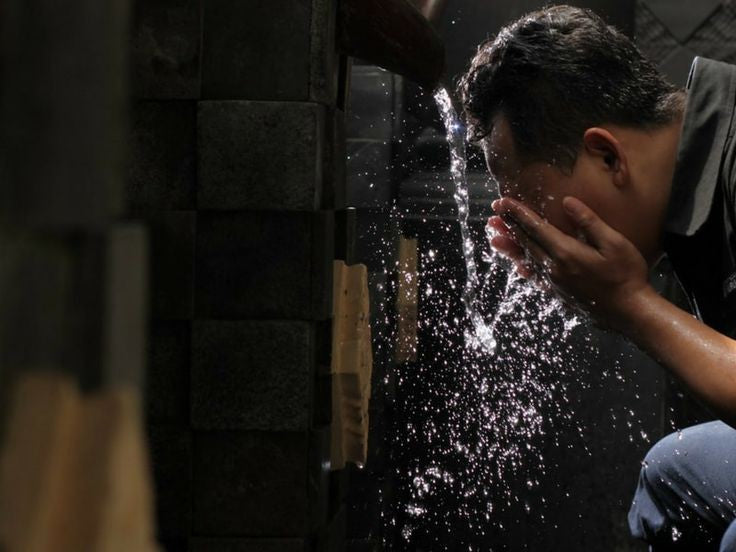Will the Prophet (PBUH) be able to recognize the Muslims on the Day of Judgment? Doesn’t it seem like such a common question that arises in the minds of numerous Muslims?
While discussing the events of the Day of Resurrection, it is reported by Abu Hurairah, that the Prophet (PBUH) replied with;
"Yes, you would have a mark which other people will not have. You would come to me with a white blaze on your foreheads and white marks on your feet because of the traces of ablution."
Wudhu, the most crucial preceding step before partaking in the act of worship or before reading the Quran, is the Islamic purification ritual where Muslims clean important parts of their body, such as; the face, arms, head, and feet. Since cleanliness is half a pillar of faith, it proves to be a completely non-negotiable act, especially when one is about to perform such an important practice of our religion.
The significance of wudhu is clear, but should it only be performed before prayer or reading the Quran? The simple answer is: no. While it’s an essential prerequisite for prayer, wudhu also carries its own unique benefits beyond worship.
Wudhu acts as a major medium of maintaining constant remembrance or spiritual awareness of Allah (SWT). Thus, strengthening our connection with the Lord. It also acts as a form of dhikr (remembrance of Allah), and even when not engaging in prayer, it keeps a believer in a constant state of purity and closeness to Allah.
BEFORE SLEEPING:
Let’s start off with, arguably, the most important time when to make wudhu aside from prior to performing any act of worship. It is vital for Muslims to go to sleep in a state of purity and remembrance, as our actions are judged by their ending. Therefore, we should prioritize concluding our night in a state of remembrance, since sleep is seen as a minor death (موت صغير), during which our souls return to Allah (SWT). After all, we cannot be certain if we will be granted the blessing of waking up to a new day.
There are numerous ahadith of the Prophet(PBUH) that stress on the recommendation and importance of making wudhu from going to sleep for example,
(Sahih al-Bukhari 247 and Muslim 2710).
Aside from that, not only is it crucial to remain in a constant state of purity but also going to sleep in that manner holds substantial significance in our book of deeds as in a sense. In a way, it allows us to continuously earn good deeds, even while we rest, like a form of passive reward.
To grasp this concept further, let's look at more examples of the Prophet’s hadith where he enlightens us about what truly happens while we are in deep slumber.
Furthermore, not only is it a form of earning reward but it also acts as a great shield from the constant prompting of Satan. Since the end of our day is a significant time frame, the impact of each of our actions has a multiplied effect. Due to Satan being aware of this, He constantly attempts to prompt the believer towards evil.
The Prophet also links this action with the importance of Salat at-Tahajjud, He clarifies how Satan goes to drastic measures to deviate a believer from the right path and creates obstacles in their way to achieve his own mission.
“When a person sleeps, Satan ties three knots at the back of his head, sealing every knot with: ‘You have a long night, so sleep.’ If the person wakes up and remembers Allah, one knot is untied. If he performs wudhu, the second knot is loosened. And if he prays, all knots are untied, and he rises in the morning lively and in good spirits; otherwise, he rises in bad spirits and sluggish.” [Sahih al-Bukhari 1142]
Clearly, this hadith reveals how each act of remembrance of Allah (SWT) protects a believer from the influence of Satan. To grasp a deeper understanding of that, read one of your previous blogs, Beyond the Basics: Unlock the Power of Non-Obligatory Prayers
References:
- https://www.abuaminaelias.com/dailyhadithonline/2020/05/03/angel-and-devil-bedtime/
- https://sunnah.com/bukhari:1142
- https://www.youtube.com/watch?v=mOuiRGRIhak

Share:
Beyond the Basics: Unlock the Power of Non-Obligatory Prayers
What Does Islam Say About Anger?